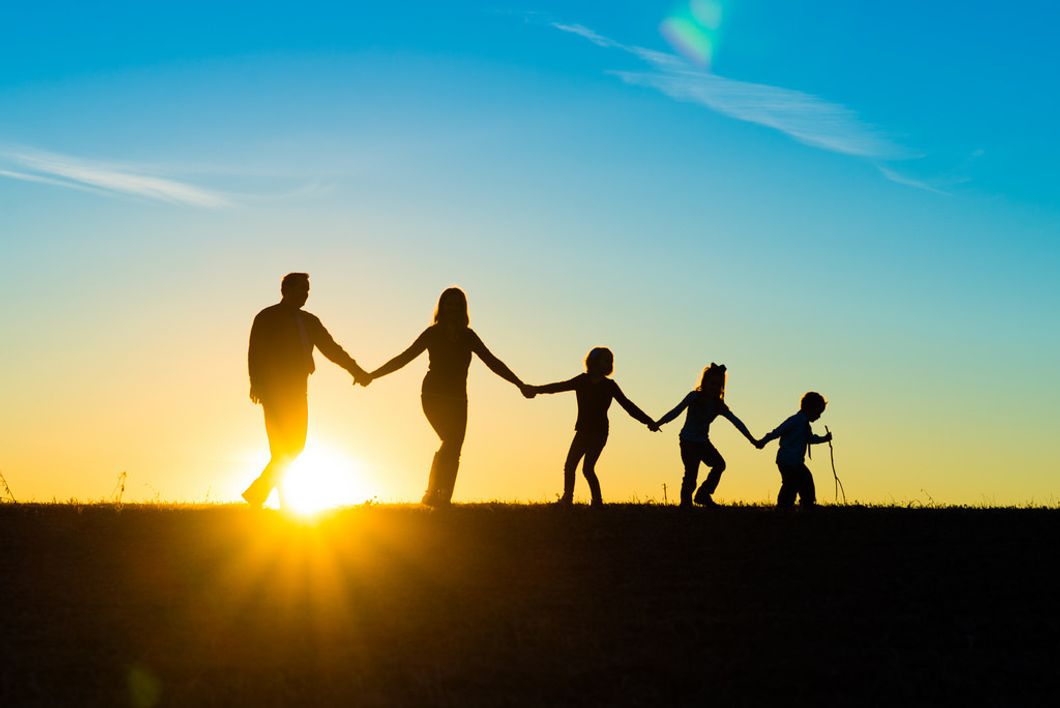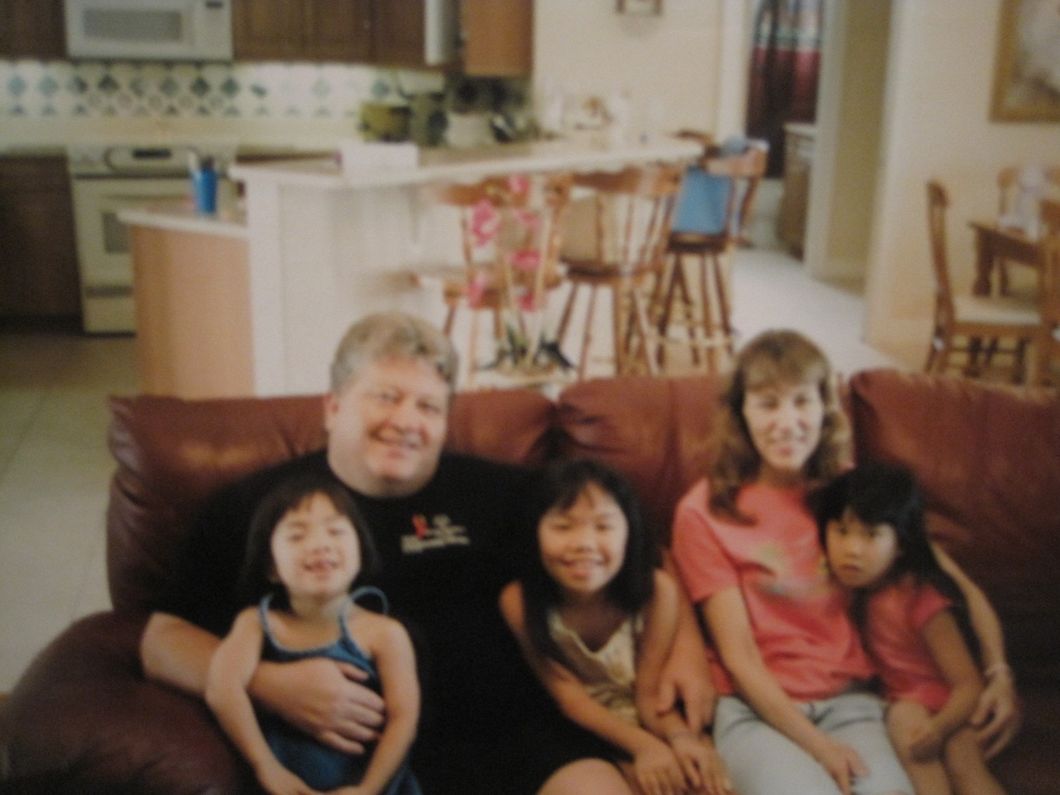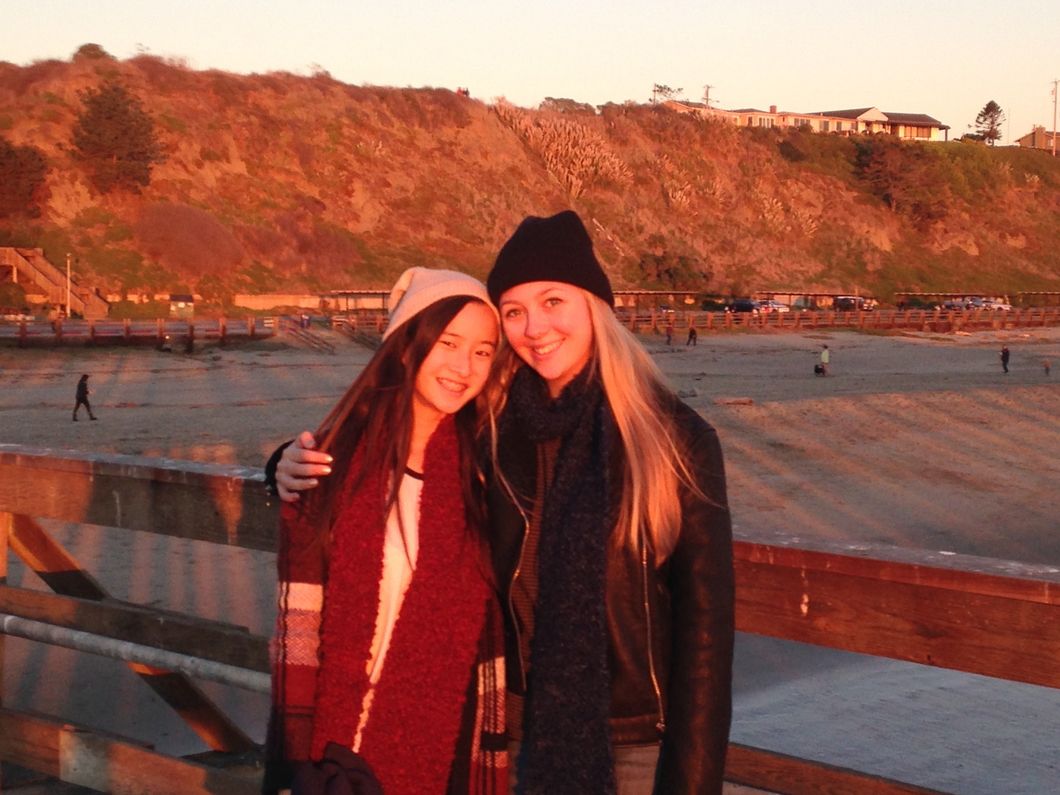Things You Should Avoid Saying When Discussing Adoption
Promoting positive language around the topic of child adoption.
As an Asian-American adopted by white parents, I've had to battle with coming to terms with my Japanese and Chinese heritage and cultural identity, as well as my adopted identity. There was a very small population of adopted kids in my elementary school and high school classes, so a lot of the kids understandably didn't truly know how to talk about the topic of adoption around me. There were certain phrases that they would say that irked me one way or the other, and I never knew why. At the end of high school, I made an adopted affinity club, where we talked about the different phrases that we all communicatively agreed were offensive, hurtful or could be phrased better. We discussed how reinforcing positive language around adoption may make the topic seem less isolating, foreign to others, and more normal overall. So, here is a list of 5 things you probably should avoid saying when talking to someone who's adopted, and/or discussing the topic of adoption in general. If you've never been in either of these prior scenarios, then consider this a learning moment!
1. "Who are your real parents?"
By saying this, it makes it sound as if someone's adoptive parents aren't their legitimate parents. So-- does this mean that your adoptive parents are 'fake parents'? Growing up with two Caucasian parents as an adopted Asian child, I already felt enough that I didn't belong. I loved my parents but I wanted to look like them like all my other friends in elementary school and preschool did. So, when someone asked me a question regarding where or who my real parents were, it made me feel more isolated and ashamed that I was adopted. A positive substitute for "real parents" is "birth parents'.
2. "Why don't you look like the rest of your family?"
Ok-- saying this is in the first place may not be the best way of going about what you're trying to really say. Sure, we all sometimes see someone who doesn't look anything like their parents. In these cases, the person you're asking may be adopted, but also may very well be blood-related to their parents, which would be awkward as well. In the case that they are adopted, this question may make them feel uncomfortable and further isolated. If someone doesn't know the person they're asking this question to very well, the best option would just be not to ask. I know that I'd personally like to blend in, and not be pointed out as "that adopted girl" or "that girl with white parents." But, if someone insists to know the answer to this question, they could ask politely "I was just curious- do you happen to be adopted?" And maybe add something positive after that such as, "- if so, that would be really cool!" However, even this may make an adoptee uncomfortable, so tread lightly. Every adoptee is different, each at their own level of acceptance. Personally, since I've had a long battle with the reality of me being adopted, and emerged grateful about and content with it, this type of question would not be too uncomfortable. However, I'd rather be the first to open up to someone about adoption rather than someone asking or confronting me about it. If someone has a friend they think is adopted, they should wait until the potential adoptee mentions it before they start asking more questions.
3. Making a joke that someone (who's not adopted) is adopted.
I'm sure we've all heard the stories or seen on television where an older sibling tells their younger sibling that they're adopted as a joke. This "joke" is used cruelly to make the younger sibling feel as if they're not a real part of the family. But this is not the reality for many adopted people. Even though I'm adopted, for example, I don't feel any less part of my family than any of my friends do with their families. But this joke and its connotations make kids afraid of being adopted from a very young age, which can cause them to have a skewed perspective of adoption as well. Therefore, when these kids are talking to peers who are adopted, they may make the adopted feel guilty or bad for being adopted, since in these kids eyes, "being adopted" is their worst nightmare.
4. "What happened-- why were you given up?"
Other ways to phrase this would be to substitute 'given up' with 'put up (for adoption),' 'given away,' and 'abandoned.' Using these words can make adoption sound more dramatic, traumatic, and negative than it is (and it really isn't any of the previously listed.) In many cases where a child is placed for adoption, the birth mother just cannot support the baby and needs to find him or her a new home. The birth parents most likely loved their child, but just couldn't support him or her. Saying that a child was "given up" or "abandoned" creates a negative, pitiful scenario around the often positive experience that is adoption. Instead of using these terms, one can consider using the phrase "choosing adoption" or "place a child for adoption" or "make an adoption plan." Promoting positive language around adoption will make the subject less uncomfortable for adoptees and others alike. I think opening this conversation is very important and crucial, as the world may need to begin being more open to adoption, as a current issue that we are facing (in developing countries) is overpopulation. Adopting kids from countries such as India and China, where birth rates are highest, may be a key solution to this problem! For this to happen, we first need to start positively talking about the subject!
5. "Oh, I'm so sorry."
Something I've always been puzzled by is why when I tell people I'm adopted, I often receive pitiful comments and apologies. While this response may stem from people being uncomfortable or not knowing what to reply, I just never understood why adoption had such a bad societal stigma. I never thought being adopted was a bad thing-- being adopted has only given me more opportunities in life. My birth parents were both 18 when they had me, and they were not even together at the time; I doubt they could have given me the education, worldly experiences, and other opportunities that my adoptive parents have given me. I'm grateful that my birth parents were so selfless that they made the decision of choosing adoption rather than raising me as their own. They realized they couldn't give me a full, opportunity-rich life, and wanted me to have just that. So when people apologize to me, it makes me feel as if it's bad to be adopted, where in reality, I can't be more thankful that I am!
Promoting a positive discourse around adoption will make adoptees feel less alienated within their families and also within society. Adoption is beautiful, and adopted families are as legitimate as families who did not adopt. This topic is really close to my heart, so if anyone has any comments, questions, or more, please feel free to reach out to me via email: emreynol@usc.edu. Keep the positive language goin'!
























